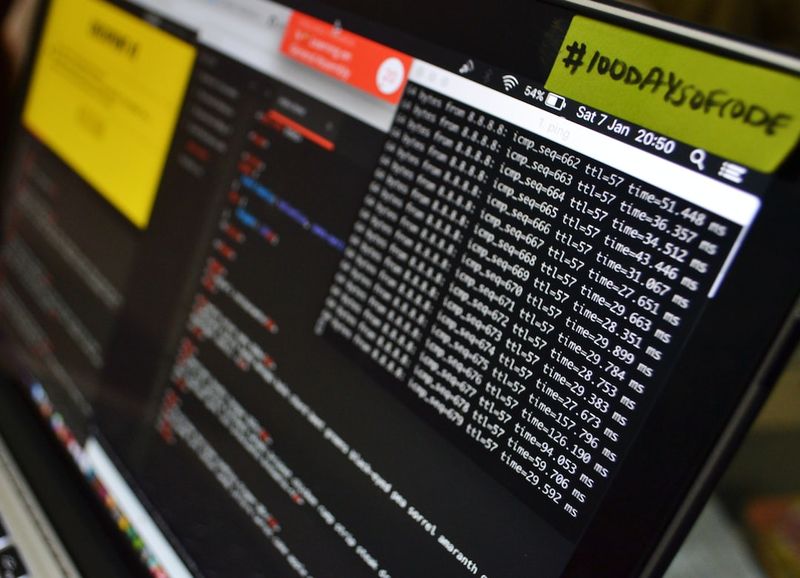Cybersecurity: Weekly News Roundup
Quickly hitting Enter key to hack an encrypted Linux computer
Researchers at Pulse Security have discovered a method by which an attacker with physical access to an encrypted Linux system can gain local root access by quickly hitting the Enter key on the keyboard or using a special device to simulate the process. This attack bypasses full-disk encryption and highlights the need for physical security measures in addition to encryption.
High-severity vulnerability patched in Chrome
A new Chrome 116 update has been released by Google, patching a high-severity use-after-free vulnerability. Such vulnerabilities can be combined with other bugs for sandbox escapes and remote code execution. While the bug bounty for this particular vulnerability has not been determined by Google yet, it is important to address such vulnerabilities promptly to mitigate potential risks.
Google details Android fuzzing efforts
Google has published a blog post detailing its ongoing efforts in Android fuzzing. Fuzzing is a technique used to find vulnerabilities in software by inputting random and unexpected data to test how the system responds. Google discusses why it continues to invest in fuzzing, the challenges it faces, and how others can contribute. This highlights the importance of proactive vulnerability testing and continuous improvement in software development.
Top-level domains and DNS issues
Research conducted by Cisco Talos highlights potential risks related to top-level domains (TLDs) and DNS issues. The study specifically focuses on the .kids TLD, ‘zombified’ DNS name issues related to various country TLDs, and problems with second-level TLDs. These findings emphasize the need for robust DNS security measures to protect against domain hijacking and other attacks.
Skype mobile app leaking IP addresses
A report from 404 Media reveals that the Skype mobile application is leaking IP addresses. Hackers can obtain a user’s IP address by sending them a link over Skype, without requiring the victim to interact with the link. Microsoft, which owns Skype, has been notified but has not yet released a patch. This highlights the importance of maintaining constant vigilance and being cautious when using communication tools that may have potential security vulnerabilities.
Rackspace faces high costs after ransomware attack
Cloud computing company Rackspace has spent over $10 million so far responding to a ransomware attack that occurred in December 2022. The attack impacted its hosted Exchange infrastructure, leading to the discontinuation of the service. Rackspace expects to continue incurring costs related to legal and other professional services in the future. This serves as a reminder of the potential financial and operational impact of ransomware attacks, emphasizing the importance of robust cybersecurity measures.
University of Michigan cyberattack
The University of Michigan has experienced a cyberattack that resulted in significant disruptions to its systems and internet outages. The university has not divulged specific details about the nature of the attack, citing an ongoing investigation. This incident underscores the constant threat universities and other institutions face from cybercriminals and the need for robust cybersecurity protocols to safeguard sensitive information.
CISA and FBI release QakBot infrastructure indicators of compromise (IOCs)
The Cybersecurity and Infrastructure Security Agency (CISA) and the Federal Bureau of Investigation (FBI) have released indicators of compromise (IOCs) associated with the recently disrupted QakBot botnet infrastructure. The botnet was targeted as part of an international law enforcement operation, which involved the distribution of a utility designed to remove the malware from infected systems automatically. This coordinated effort highlights the importance of collaboration between agencies and organizations to combat cybercrime effectively.
Classiscam cybercrime groups scamming users worldwide
A report by Group-IB sheds light on the activities of Classiscam, a scam operation that has allowed hundreds of cybercrime groups to make nearly $65 million by targeting individuals across 79 countries. These groups trick victims into sending money for non-existent goods sold online. The report also highlights the rise of automated scam-as-a-service programs that simplify the process for scammers. This demonstrates the ongoing challenges in combating cybercrime and the need for public awareness and education to protect against such scams.
Malwarebytes lays off employees
Cybersecurity firm Malwarebytes has laid off 100 employees as it prepares to separate its consumer- and enterprise-focused business units. This restructuring follows the company’s decision last year to terminate approximately 14% of its staff. While this move reflects the evolving business needs of Malwarebytes, it also raises questions about the broader cybersecurity industry and the impact of market dynamics on cybersecurity companies.
Editorial
The Evolving Landscape of Cybercrime
The recent cybersecurity news roundup highlights the ever-evolving landscape of cybercrime. From new attack techniques and vulnerabilities to the financial and operational impacts of cyberattacks, it is clear that cybersecurity remains a critical concern for individuals, organizations, and governments worldwide.
In an increasingly interconnected world, where technology permeates almost every aspect of our lives, the risks associated with cybercrime continue to grow. Attackers are constantly seeking new ways to exploit vulnerabilities and gain unauthorized access to sensitive information. As shown in the news stories, attackers can now bypass full-disk encryption on Linux systems, leak IP addresses through communication applications like Skype, and target universities and other institutions.
The implications of these cyberattacks are significant. The costs incurred by companies like Rackspace in remediating attacks can be substantial, not only in terms of financial losses but also in terms of damaged reputation and customer trust. Similarly, the disruption caused by attacks on critical infrastructure, such as universities, can have far-reaching consequences for education and research.
As the threat landscape evolves, so too must our approach to cybersecurity. This includes not only investing in robust technical solutions but also fostering a culture of cybersecurity awareness and education. Individuals and organizations alike must prioritize cybersecurity in their daily activities, whether it’s implementing strong password practices, regularly updating software, or staying vigilant for phishing attempts.
Moreover, governments and law enforcement agencies must continue to collaborate and share information to combat cybercrime effectively. The coordination between CISA and the FBI in disrupting the QakBot botnet infrastructure serves as a positive example of the progress being made in this regard.
Advice
Protecting Against Cyber Threats
While the evolving nature of cyber threats may seem daunting, there are steps individuals and organizations can take to protect themselves:
1. Implement strong security practices:
Ensure that all devices, software, and networks are up to date with the latest security patches. Use strong, unique passwords and enable multi-factor authentication whenever possible. Regularly back up important data and verify that backup data is secure.
2. Educate yourself and your employees:
Stay informed about the latest cybersecurity threats and educate yourself and your employees about best practices, such as identifying phishing attempts and avoiding suspicious links or downloads. Cybersecurity awareness training should be an ongoing effort to keep up with the evolving threats.
3. Secure your networks:
Implement robust network security measures, such as firewalls and intrusion detection systems, to protect against unauthorized access. Regularly monitor network traffic for any suspicious activity and promptly investigate any potential breaches.
4. Collaborate with cybersecurity professionals:
Engage with cybersecurity professionals who can provide guidance and expertise in implementing effective security measures. Develop relationships with trusted vendors and partners who can offer comprehensive cybersecurity solutions.
5. Report and share information:
If you encounter a cybersecurity incident, report it to the appropriate authorities and share relevant information with industry organizations and law enforcement agencies. By sharing information, we can collectively work towards better understanding and preventing cyber threats.
In conclusion, the recent cybersecurity news roundup underscores the ongoing need for individuals, organizations, and governments to remain vigilant and proactive in the face of evolving cyber threats. By implementing strong security practices, staying informed, and collaborating with cybersecurity professionals and authorities, we can mitigate the risks and defend against cybercrime in our digital world.

<< photo by Michael Dziedzic >>
The image is for illustrative purposes only and does not depict the actual situation.
You might want to read !
- The Linux Ransomware Dilemma: Protecting Critical Infrastructure from a Growing Menace
- Investigating the Rise of BPFDoor: The Latest Threat to Linux Security
- The Race Against Cyber Threats: An In-depth Look at Android’s August 2023 Security Updates
- Google Releases Crucial Android Patch Update amid Active Exploited Vulnerabilities
- The Urgency of Strengthening Android Security Patching
- The Hidden Dangers of Usernames and Passwords: Uncovering the Vulnerabilities
- Sourcegraph’s Data Breach: Unveiling the Aftermath of an Access Token Leak
- How the Pandemic Fueled the Lucrative Business of Classiscam Scam-as-a-Service
- Why a Delaware Judge Thinks Facebook Should Keep Facing Shareholder Suit on User Data Privacy Breaches




